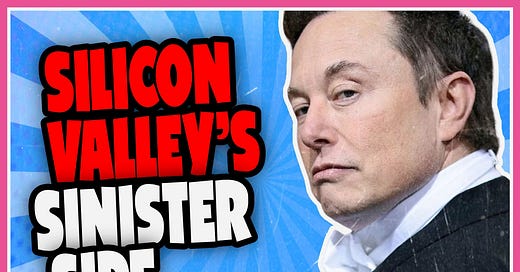Lies and Riots: Britain's Broken Information Environment is Destroying Democracy
As press lies and online disinformation once again incite real world violence, this government must learn from the Conservatives' failure to protect communities.
As Mark said in his piece yesterday, the violent and racially motivated riots we have witnessed in recent days didn’t just come out of nowhere. For years, our print and television media peddled hateful rhetoric about migrants, Muslims, and asylum seekers. Our de-regulated online environment has now proven to be even more dangerous. This government urgently needs to take action.
Fear-mongering about “swarms”, “invasions,” and “illegal marauders” has been commonplace in the British press for years now. So are the repeated Farage-inspired lies about migrants and Muslims, from “no-go” areas to plots to bring about Sharia law in the UK.
The Murdoch and Rothermere papers have, for years, offered sympathetic coverage to divisive demagogues who exist only to spread division and hate. Nigel Farage and his ilk are platformed uncritically, with no mention made of their violent remarks or harmful and racist claims. Charlatans like Matt Goodwin and Douglas Murray are given bylines and editorials to spew noxious lies, blaming all of our problems on society’s most marginalised and peddling conspiracies about a “woke” and nefarious enemy within.
Our press system has served to radicalise and misinform, steering people away from real discussions about pertinent issues (which is what democracy is all about) and towards senseless hatred and violence.
The digital space has only exacerbated this problem. Our online space, supposedly the “town square” upon which we’re to assemble and debate the issues of our time, has increasingly become dominated by a radical minority of right-wing agitators. Beginning on “alternative” platforms like Telegram, Parler, and Gab, conspiracies and lies permeate into the mainstream, particularly on Elon Musk’s “X”.
Julie Ebner, who heads up Oxford University’s Violent Extremism Lab, explained it well to The Guardian: “You see this chain reaction in these alternative news channels, where disinformation can spread so quickly and can mobilise people to take the streets – who are then prone to using violence because there’s this anger and these really deep emotions that are, of course, being amplified. And then, from these alternative outlets, it’s carried on to X or on to the mainstream social media platforms.”
That’s exactly how these race riots began. A false claim about the identity of the Southport murderer was amplified by dodgy fringe news outlets online, and eventually picked up by major right-wing influencer accounts like Andrew Tate, Tommy Robinson, and Laurence Fox. It very quickly extended beyond Southport, with right-wing thugs, beer cans in hand, descending on UK towns and cities around the country.
It’s not even a new phenomenon. The attacks on the US Capitol on January 6th 2021 started in much the same way, as did the right-wing copycat attack on Brazil’s centre of government in 2023 and the xenophobic riots that erupted in Germany back in 2018.
The UK’s information environment, as it stands, is not compatible with real democracy. Everyone needs to exist in a basic shared reality, and the siloing effects of disinformation and conspiracies are undermining our ability to see the world in the same way. It’s putting jet fuel behind the worst elements of our traditional press, creating a political environment ripe with anger and hostility but devoid of meaningful debate.
We had an opportunity, with the Conservatives’ Online Safety Act, to create new and bold regulations that would reign in the dangerous business model of big tech. That regime was ultimately watered down to basically nothing, leaving the Act a complicated mess that largely allows tech giants to self-regulate.
Keir Starmer must see these riots as a wake up call, and legislate on the disinformation eating away at our democratic process. People need to be able to properly understand the issues impacting their lives, not get so swept up in the delusions of terminally online hate-mongers that they harm innocent people and destroy our communities.
Technology has the power for both great good and great evil. We could build a digital democracy that’s fit for the challenges of the 21st century. Until we do, though, we’re going to continue to see far-right extremism and violence, and fail to have the meaningful political debates we so desperately need.





